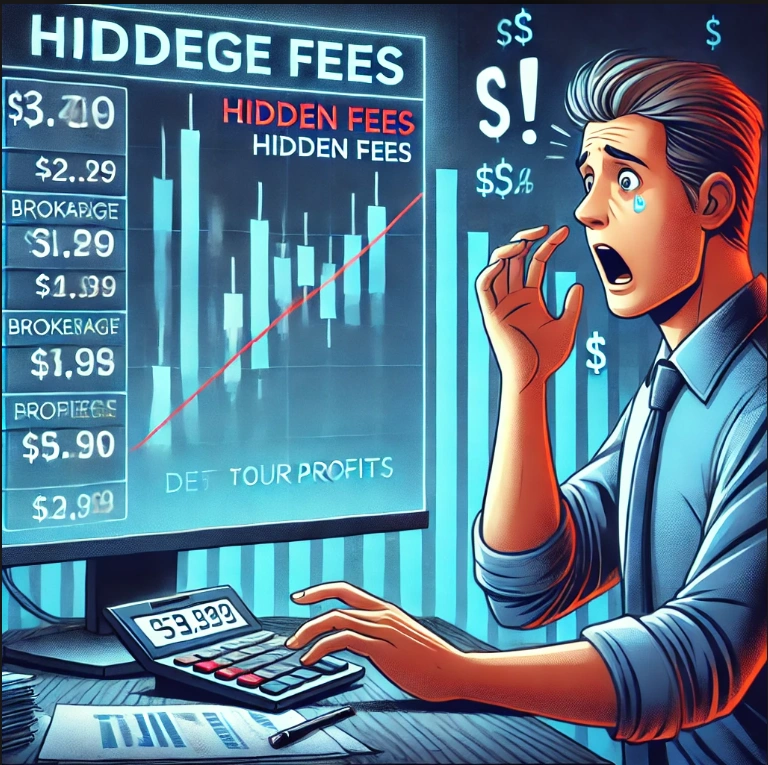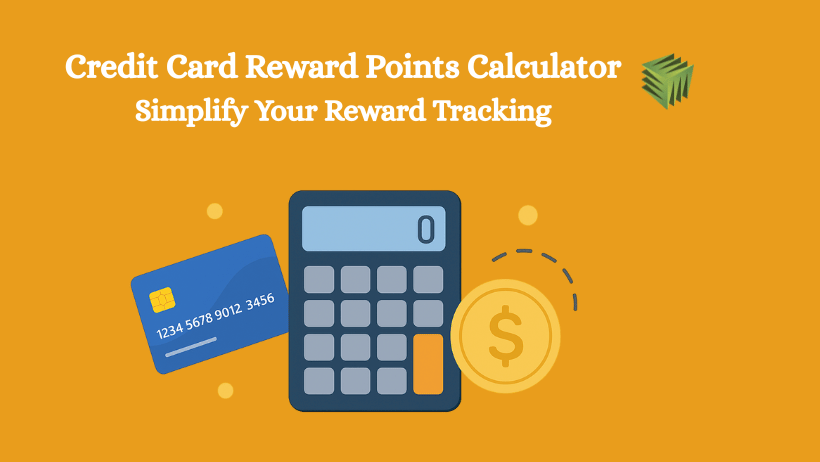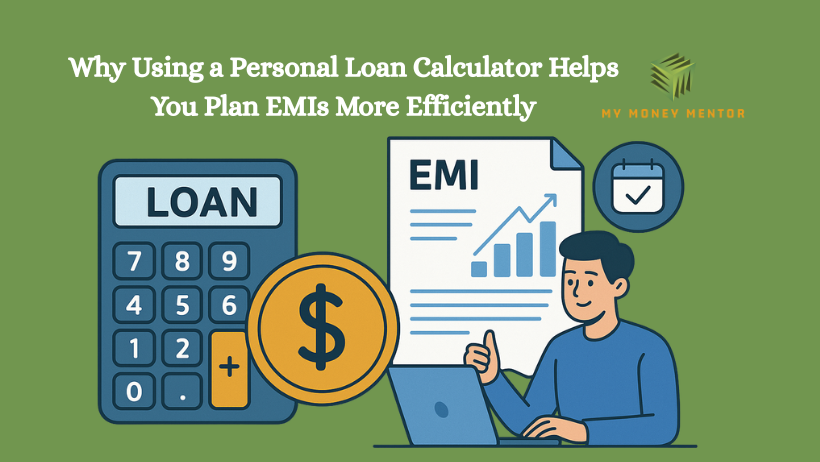Want to know about all the trading brokerage charges, charges, fees and taxes levied on traders? Read along to find out.
Market participants ranging from intraday option traders to long-term stock investors place their trading orders on stock exchanges through stock brokers. Brokers charge trading fees for placing orders, and each market participant should know the fees they are paying while trading. This blog provides insights into trading brokerage charges paid by market participants while trading.
What is Brokerage Fee?
A stock broking fee or brokerage is a small amount that stock brokers charge from market participants for placing trading orders in the market on their behalf.
For example, an investor purchases 10,000 shares of Company X at ₹100 a share. The total transaction value for this trade is ₹10 lakhs. A broker might charge 0.1% of the transaction value as a brokerage, which amounts to ₹1,000.

Trader analyses stock market data on a screen, uncovering hidden trading brokerage charges and calculating fees to reduce trading costs.
Factors Determining Trading Brokerage Charges
Brokerage fees calculation can vary from broker to broker. Let’s explore some factors that determine the size of brokerage charges.
- Broker Type: An online discount broker can have lower trading fees, whereas a full-service broker generally has higher trading fees. Full-service brokers provide additional services like portfolio management, investment advice, research reports, etc.
- Price of Security: The brokerage charges are also impacted by the price of security. Some brokers charge the brokerage as a portion of transaction value. Hence, a high priced security can attract more brokerage.
- Trade Type: The amount of brokerage fees also depends on the type of order. Limit orders, intraday orders, delivery orders, etc, can all have different brokerages associated with them.
- Exchange and Segment: The cash segment, futures, and options segment can have different brokerage fees, and Brokerage charges can vary from exchange to.
- Trading Volumes: Some brokers can choose to give discounts to their clients with high trading volumes. This ensures constant revenue for the broker.
Comparing brokerage fees among brokers is essential for traders to select the appropriate broker and improve your investments.
Types of Brokerage Fees
The brokerage can be charged in multiple ways, such as:
- Per Trade Fees: A fee that is charged per trade. The size of the trade does not matter in this case. For example, ₹20 per trade.
- Percentage Fee: This is the most commonly used brokerage system. Brokers charge a fixed percentage of transaction value as brokerage fees. For example, 0.1% charge on transaction value.
- Monthly/ Annual Plans: Some brokers provide a form of monthly or yearly brokerage plans. A lump sum amount is paid for the entire month in advance. Under this structure, traders can place unlimited amounts of trades.
- Trading Platform Fees: Online brokers can charge an annual or quarterly fee as a platform charges. This fee is charged even if no trades are placed.
Additional Charges on Trading
On top of the trading brokerage charges paid by the market participants, there are some hidden fees in stock trading that have to be paid.
- Securities Transaction Tax: STT is a tax charged by the government for buying and selling financial assets. It is imposed on both the buy and sell sides while trading equity in delivery.This tax is only charged on sell-side orders for intraday and futures and options. STT is not charged on commodities.
- Commodity Transaction Tax: A CTT is similar to STT but is imposed on futures and option contracts of commodities. This tax is only applied to non-agricultural commodities.The current CTT tax is 0.01% of the sale value of derivatives contracts.
- SEBI Turnover Fees: The SEBI charges a fee on the total value of the trades places. Both buy and sell side trades attract these fees, and it is charged on all exchanges. For financial securities, this fee is 0.0001% of the transaction value.
- Stamp Charges: Stamp charges are paid to the government, and this tax is a certain percentage of the transaction value. This tax is paid by the buyer of financial security.
- Transaction Charges: Transaction fees are charges imposed by stock exchanges for executing, clearing, and settling trades on their platforms. These fees, which are typically calculated based on the value of the trades, cover the costs associated with facilitating these transactions.
- Goods and Services Tax: The total of the brokerage fees, transaction charges, and SEBI turnover fees are subject to an 18% GST.
Brokerage Charges
After understanding the types of trading brokerage charges that are imposed on traders, let us look at the current rate of these charges on different types of financial products in equity, currency, and commodity segments.
Equity Charges
| Charge Type | Delivery | Intraday | Futures | Options |
| Brokerage | Varies among Brokers | Varies among Brokers | Varies among Brokers | Varies among Brokers |
| STT | 0.1% (Buy and Sell side) | 0.025% (Sell side) | 0.02% (Sell side) | 0.1% (Sell side) |
| Transaction Charges | NSE: 0.00297% BSE: 0.00375% | NSE: 0.00297% BSE: 0.00375% | NSE: 0.00173% BSE: 0 | NSE: 0.03503% BSE: 0.00325% |
| GST | 18% | 18% | 18% | 18% |
| SEBI Charges | ₹10/ crore | ₹10/ crore | ₹10/ crore | ₹10/ crore |
| Stamp Charges (Buy Side) | 0.015% | 0.003% | 0.002% | 0.003% |
Commodity Charges
| Charge Type | Futures | Options |
| Brokerage | Varies among Brokers | Varies among Brokers |
| STT | 0.01% (sell side) | 0.05% (sell side) |
| Transaction Charges | MCX: 0.0021% NSE: 0.0001% | MCX: 0.0418% NSE: 0.001% |
| GST | 18% | 18% |
| SEBI Charges | Agri: ₹1/ crore Non-Agri: ₹10/ crore | ₹10/ crore |
| Stamp Charges (Buy Side) | 0.002% | 0.003% |
Currency Charges
| Charge Type | Futures | Options |
| Brokerage | Varies among Brokers | Varies among Brokers |
| STT | N/A | N/A |
| Transaction Charges | NSE: 0.00035% BSE: 0.00045% | NSE: 0.0331% BSE: 0.001% |
| GST | 18% | 18% |
| SEBI Charges | ₹10/ crore | ₹10/ crore |
| Stamp Charges (Buy Side) | 0.0001% | 0.0001% |
Conclusion
These trading brokerage charges are imposed on all traders and investors. Each market participant should learn about these charges for better financial planning and reducing trading costs. When trading intraday, higher trading brokerage charges can significantly affect profitability. Investors and traders must properly understand these charges for better trading decisions.









